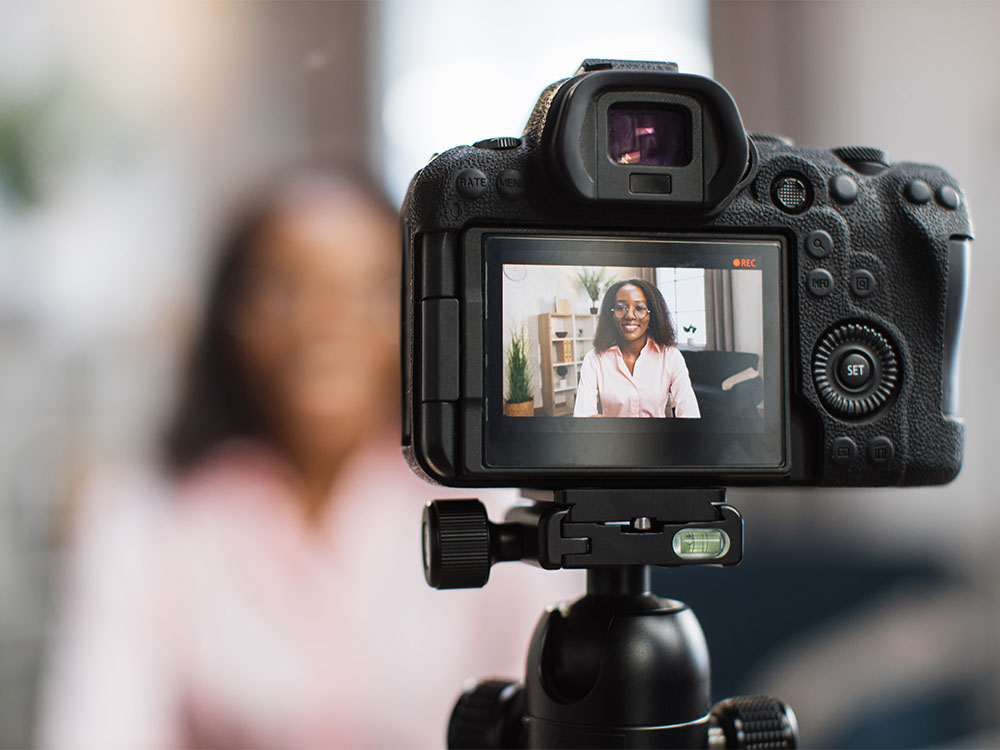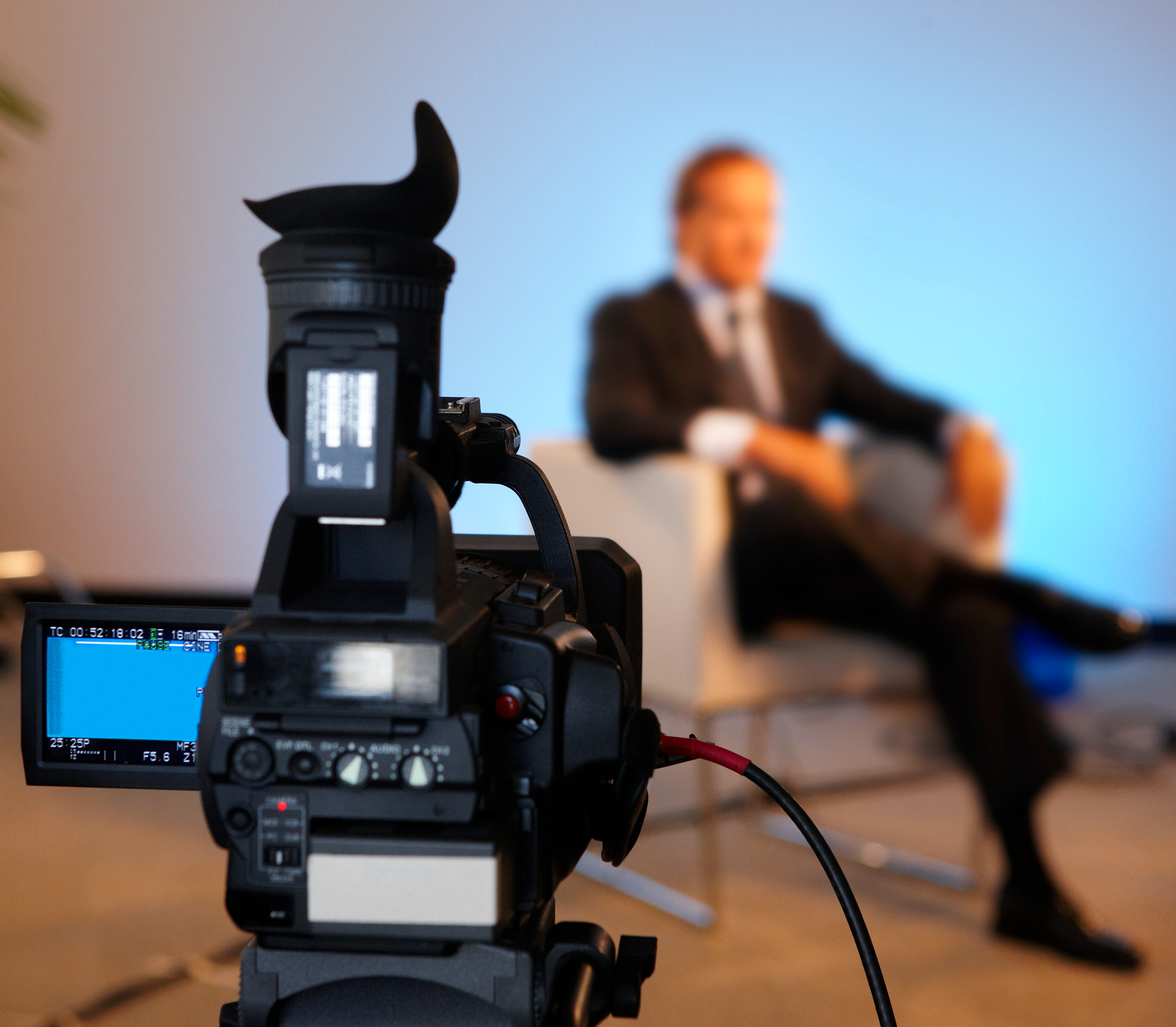Legal video depositions as a tool for case preparation and trial strategy
The Relevance of Lawful Video Depositions in Modern Legal Solutions: What You Should Know
Legal video depositions have actually become crucial in today's lawful landscape. They give a multidimensional view of witness testaments that conventional records simply can not match. By recording both non-verbal and spoken communication, these depositions boost the general understanding of a witness's credibility. Nevertheless, the effectiveness of video clip depositions pivots on different variables, consisting of conformity with legal requirements and finest methods (legal video depositions). Discovering these aspects discloses their true value in modern-day lawful services
What Are Lawful Video Clip Depositions?
Legal video depositions act as a crucial tool in the lawsuits procedure. They entail tape-recording witness testimonies in a video clip format, catching both spoken and non-verbal communication. This method permits attorneys to document the demeanor, expressions, and responses of witnesses, giving a richer context for the testament. Generally carried out in a regulated atmosphere, these depositions are led by lawyers that ask questions while a court press reporter documents the discussion. The resulting video clip can be essential for trial prep work, as it makes it possible for lawyers to examine the integrity of witnesses and refine their techniques. Furthermore, lawful video depositions can be used in different lawful contexts, ranging from civil conflicts to criminal cases. The acoustic and aesthetic components of video depositions improve the discussion of evidence, making it a necessary part in the contemporary lawful landscape. Overall, they contribute considerably to the performance and efficiency of legal procedures.

Advantages of Video Clip Depositions Over Traditional Approaches
Video depositions provide countless benefits compared to typical techniques of taking witness testaments. One substantial advantage is the capacity to catch both visual and audio components, providing a more complete document of the witness's statements. This dual layout boosts clearness and enables legal professionals to reference certain nuances throughout trial preparation. In addition, video depositions promote remote engagement, making it easier for witnesses who may be not available for in-person appearances as a result of geographical restraints or health issues.Moreover, video clip depositions can quicken the general deposition process, lowering the moment and expenses connected with travel and logistics. They likewise improve availability, as videotaped depositions can be conveniently shared amongst legal teams and referenced at any moment. This comfort adds to far better case monitoring and prep work. On the whole, video clip depositions stand for a modern-day, effective approach to collecting witness statements, lining up with the advancing demands of the legal profession.
The Duty of Body Movement and Tone in Testimonies

In legal video depositions, body language and tone play important functions in communicating a witness's trustworthiness and dependability. Nonverbal signs can offer insights right into a witness's mood, influencing exactly how their testimony is viewed. Understanding the influence of these components is necessary for jurors and attorneys alike when assessing the integrity of a testament.
Nonverbal Communication Insights
While verbal communication is frequently emphasized in lawful testimonies, nonverbal signs such as body language and tone play an important function in sharing integrity and feeling. Onlookers of depositions may note that a witness's posture, gestures, and faces can greatly influence perceptions of integrity. For example, constant eye get in touch with might signal self-confidence, while staying clear of look could recommend deceit or pain. The tone of voice-- its speed, pitch, and quantity-- can impart feelings of sincerity or uncertainty. Legal specialists have to be in harmony with these nonverbal signals, as they commonly provide important context that enhances spoken words. Recognizing these nuances can enhance the efficiency of depositions and affect the outcome of legal process.
Emotional Tone Influence
The psychological tone shared during legal testaments considerably impacts how a witness is viewed. Body language, vocal inflections, and facial expressions play important roles in shaping the narrative of a testament. A witness exhibiting self-confidence with stable eye call and a tranquil tone can infuse a sense of dependability and interaction. Conversely, signs of stress and anxiety, such as fidgeting or an unsteady voice, might lead to hesitation regarding their account. The nuances of psychological expression can influence the analysis of realities, making it essential for attorneys to identify these cues. In video depositions, the auditory and aesthetic components incorporate, emphasizing the relevance of emotional tone in communicating sincerity and reliability within the legal process.
Credibility and Credibility
A crucial consider establishing reputation and credibility throughout testaments hinges on the witness's body movement and intonation. Onlookers frequently depend on non-verbal signs-- such as eye get in touch with, pose, and gestures-- to assess a witness's genuineness. For example, a witness who maintains eye get in touch with i thought about this and displays open body movement may be viewed as even more truthful and trusted than one who prevents eye contact or appears shut off. Furthermore, tone of voice plays a vital duty; a steady, calm tone can strengthen the integrity of the testimony, while fluctuations in pitch or volume might raise uncertainties. Ultimately, the combination of body movement and vocal tone considerably influences just how a witness's statements are received and translated in a lawful context.
Finest Practices for Performing Video Clip Depositions
Carrying out video clip depositions needs careful preparation and execution to assure a efficient and clear discussion of testament. First, it is essential to pick a quiet, well-lit area to minimize distractions and safe ideal video quality. The tools ought to be tested beforehand, including cameras, microphones, and illumination, to stay clear of technical problems throughout the deposition.Next, events involved should examine the style and procedures beforehand, seeing to it that every person recognizes their functions. The deponent needs to be briefed on the process, including how to react clearly and concisely.Additionally, preserving a specialist attitude throughout the session is necessary. This consists of abstaining from talking over each other and validating that all concerns are routed appropriately. It is vital to tape-record the deposition in a layout that allows for simple playback and testimonial, protecting the stability of the testimony for future use.
Legal Considerations and Compliance Issues
Exactly how do legal factors to consider and conformity concerns influence the performance of video depositions? Legal specialists must browse an intricate landscape of laws, making sure that video depositions stick to jurisdictional guidelines and requirements. Compliance with legislations worrying privacy, authorization, and recording approaches is necessary. Acquiring specific permission from all celebrations included is needed to avoid lawful repercussions.Additionally, the admissibility of video proof in court can pivot on compliance with step-by-step requirements. Making certain that the equipment utilized fulfills technological requirements is also essential, as poor top quality can undermine the deposition's reliability.Moreover, lawyers have to know any kind of certain state legislations that control video clip depositions, as these can differ considerably. Failure to attend to these considerations can not just threaten the stability of the deposition yet likewise impact the total instance strategy, ultimately affecting the client's lawful results.
Just How Video Clip Depositions Effect Jury Understanding
While video clip depositions can work as effective devices in legal her response proceedings, their influence on jury understanding is substantial. The aesthetic and auditory components of video clip recordings supply jurors with an extra thorough understanding of witness demeanor, integrity, and psychological responses. This multimedia strategy can improve the jurors' capacity to analyze the dependability of statement contrasted to conventional text-based transcripts.Moreover, video depositions permit jurors to observe body language, tone of voice, and face expressions, all of which can affect their interpretation of the witness's statements. The existence of a witness on screen can humanize them, cultivating compassion and connection, which might sway jurors' opinions. Alternatively, a witness that shows up undependable or evasive on video clip may cause unfavorable understandings that affect a court's choice. Ultimately, the dynamic nature of video depositions plays a vital function fit how jurors interpret evidence and reach their decisions.
The Future of Video Clip Depositions in Legal Method
As advancements in modern technology remain to improve the legal landscape, the future of video depositions is poised for considerable development. Technologies such as synthetic intelligence, online reality, and improved video clip conferencing devices are anticipated to streamline the deposition process and boost access. Lawful professionals may my website use AI-driven analytics to evaluate witness trustworthiness and situation stamina more effectively.Moreover, the integration of virtual fact might permit juries to experience immersive simulations of depositions, supplying deeper context and understanding. Furthermore, the trend toward remote depositions is most likely to persist, providing higher versatility for customers and attorneys alike.As remote work becomes progressively normalized, video depositions will likely end up being common technique, decreasing costs and time restrictions related to standard methods. On the whole, these technical developments promise to improve the efficiency, efficiency, and accessibility of video clip depositions in legal practice, eventually transforming just how lawful professionals prepare for trial.
Regularly Asked Inquiries
Just How Much Do Lawful Video Depositions Generally Price?

Can Video Clip Depositions Be Made Use Of in Any Type Of Sort Of Situation?
Video depositions can be used in different sorts of instances, including civil, criminal, and family legislation. Their versatility allows lawyers to existing witness testimonies properly, adjusting to the details requirements of different legal scenarios.
What Equipment Is Required for a Video Deposition?
To conduct a video clip deposition, vital devices consists of a premium video camera, microphone, illumination, and a reliable recording device. Additionally, a computer system with modifying software application might be essential for post-production and formatting the last video.
For how long Does a Regular Video Deposition Last?
A typical video clip deposition lasts in between 2 to 4 hours, depending on the complexity of the case and the number of questions posed. Extensive sessions may happen, however breaks are typically included for participant convenience.

Are Video Depositions Admissible in Court?
Video clip depositions are normally admissible in court, supplied they comply with legal standards and rules of evidence. Their usage improves clearness and protects witness testimony, aiding in the judicial process during hearings and trials. Lawful video clip depositions have ended up being important in today's legal landscape. In addition, legal video clip depositions can be made use of in different lawful contexts, varying from civil disputes to criminal situations. Additionally, video depositions facilitate remote involvement, making it easier for witnesses that might be inaccessible for in-person appearances due to geographical restraints or wellness issues.Moreover, video depositions can expedite the total deposition process, lowering the time and expenses connected with travel and logistics. Ensuring that the tools used fulfills technological requirements is also important, as bad high quality can weaken the deposition's reliability.Moreover, attorneys have to be aware of any certain state laws that regulate video clip depositions, as these can differ significantly. Additionally, the trend toward remote depositions is most likely to persist, supplying greater versatility for clients and attorneys alike.As remote work comes to be increasingly stabilized, video clip depositions will likely end up being typical technique, minimizing prices and time restrictions connected with standard methods.